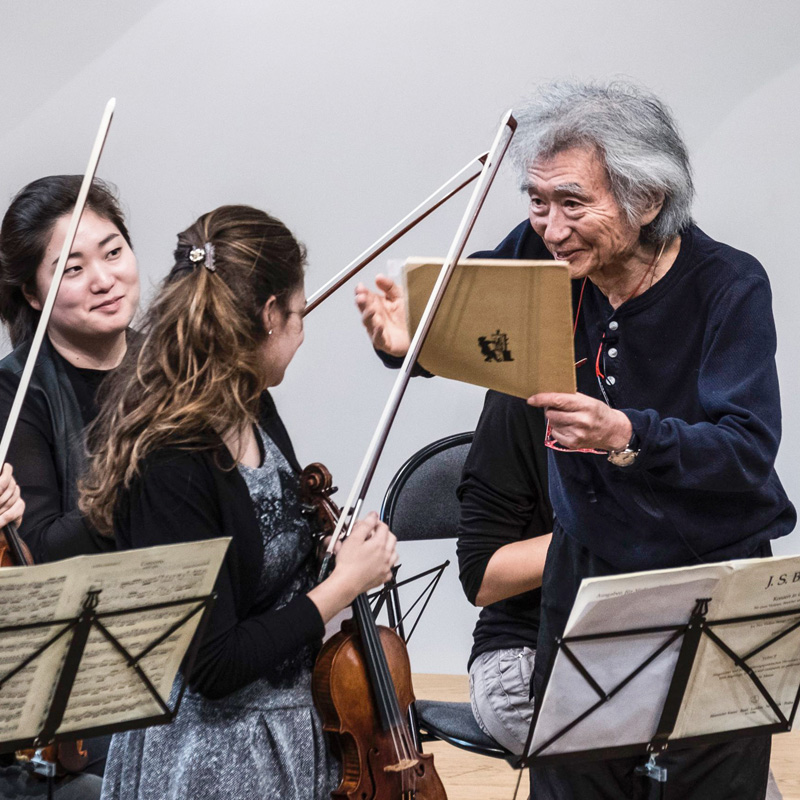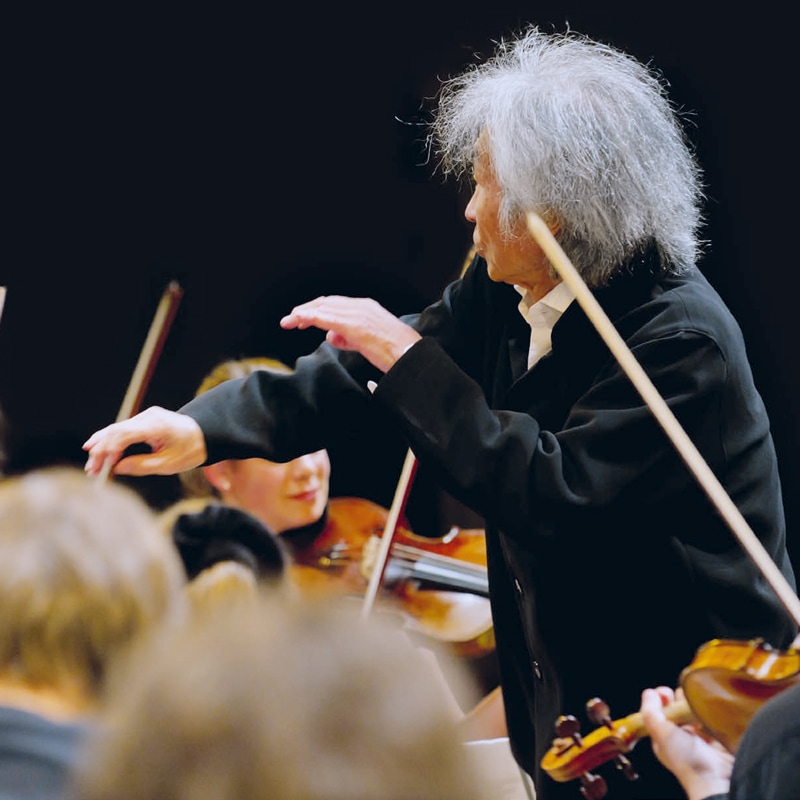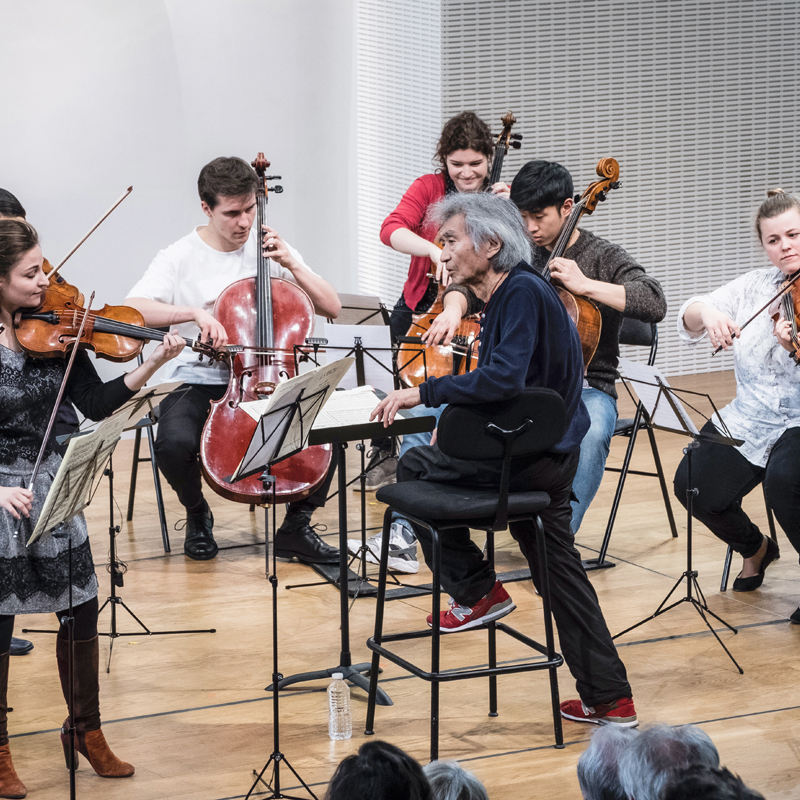Seiji Ozawa, a passion for sharing
—
Seiji Ozawa was born on September 1, 1935 in China and died on February 6, 2024 in Tokyo.
At the age of sixteen, he entered the Toho Gakuen music school in Tokyo. Hideo Saito, the undisputed master of music in Japan, became his mentor. The young Seiji soon discovered his vocation: he would become a conductor. In 1959, Seiji Ozawa became the first Japanese conductor to win the Besançon International Competition for Young Conductors. Charles Münch then invited him to conduct the Boston Symphony Orchestra at Tanglewood Music Festival. His career was launched. In Berlin, he was taught by Herbert von Karajan and furthered his training with Leonard Bernstein.


In Japan, in 1984, he created an orchestra to pay tribute to his teacher Hideo Saito: the Saito Kinen Orchestra. He created the Mito Chamber Orchestra and launched the first Japanese music festival, the Saito Kinen Festival, which became the Seiji Ozawa Matsumoto Festival, held every year in Matsumoto.
“I love working with young musicians… I don’t have to push them. We just have to find the same phrasing, the same breath…”
Seiji Ozawa

“It is fascinating to see how young artists make progress in a very short time.”
Seiji Ozawa
